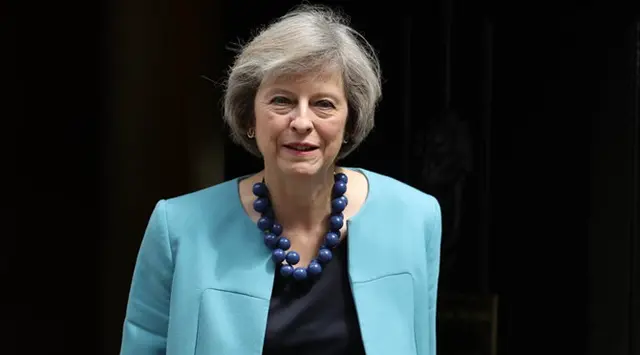By APD writer Zhang Bei
UK’s referendum on EU membership in June has sent tremendous shockwaves across the world, and its impact on the UK, EU and the world at large is yet to manifest itself. It is first of all a major earthquake in British politics. David Cameron’s career in 10 Downing Street came to an abrupt end as British people voted to leave the EU. This has paved way for Theresa May’s ascension.
59-year-old May is the daughter of a Church of England vicar. She was raised in a modest family and received largely public education. The middle-class upbringing has given her a pragmatic sense and low-key profile. As early as in college, she was determined to go into politics. After being elected to the Parliament in 1997, she went through a series of promotions in the Conservative Party, and joined the shadow Cabinet afterwards. In 2010, May served as Home Secretary in the Coalition government. Though the Home Office has the reputation as being a political graveyard, May made a success of it. In fact, May is the only female in the top echelon of the Tory Party in more than a dozen years. The fact that she not only survived but also ascended to the highest position in a still largely male elites dominated arena speaks of her extraordinary governance capabilities and political skills.
During her time at Home Office, the crime rates fell, many terrorist attempts were thwarted, and police discipline strengthened. In the meantime, she has made a positive image of being capable and trustworthy. She fiercely defends her position as Home Secretary and clashed several times with then Chancellor George Osborne over immigration issues. Her toughness is well presented when speaking frankly “you know what some people call us — the nasty party" at a Conservative conference. However, despite the hallmark toughness, she is low profile and down-to-earth in nature, and her toughness is only shown when it comes to work. She avoided political infighting and was able to be loyal to the leadership but be kept from an objective distance. This has made her unscathed, and in fact a beneficiary, from the huge political fallout from the Referendum.
After taking office, May has repeatedly said she is not willing to let Brexit define her term and in speeches raised social reform as her prioritized objective. However, the execution of Brexit is an unprecedentedly complex and colossal project and will occupy a major part of May and her administration’s energy and resources. Whether May could make a success of it will shape Britain’s future in decades to come. Therefore, her term will not only have a deep “Brexit” imprint, her legacy also largely depends on it.
To deliver Brexit at this early stage already proves difficult. Though May argued forcefully “Brexit is Brexit”, the actual implementation is by no means easy. The Supreme Court’s ruling on the role of Parliament is still pending; reports that May’s cabinet is divided over the terms and conditions of Brexit are widely circulated. The execution of Brexit is easier said than done.
Although the triggering Article 50 of the Lisbon Treaty is set to be before the end of March 2017, the most essential part of the post-Brexit arrangement, relations between UK and the European Single Market, is still not clear, due to which, uncertainties for many UK industries are still in place. The dilemma lies in UK’s preference for limiting EU migrants and EU’s principle of the “four freedoms”. EU argues accepting freedom of movement of people is the price to pay for staying in the Single Market. Considering May’s track record as being tough on immigration and UK’s widespread weariness towards immigrants as shown in the Referendum, the dilemma could prove to be a major hurdle for EU-UK Brexit deal.
At another level, that Britain voted to leave the EU is an expression of nativism and anti-globalization, but May and her administration try to make this result an opportunity to further “embrace the world”. That is, people ask for more “protection” but May intends to give them more “exposure”. This is almost the most ironic result of the Brexit and will probably let many classic Brexit voters feel cheated. As many of May’s ministers put forward, UK will seek bilateral free trade deal around the globe. But this approach will not be easy and certainly is not enough to solve problems the country is facing that made voters cast their Brexit votes.
Since taking office, May has been constantly compared with Margaret Thatcher. To a certain extent, her task is more formidable than her predecessor. UK is at a critical historical juncture and Brexit could be a door to a better world or an ultimate disaster. Much will depend on Theresa May.
 简体中文
简体中文

